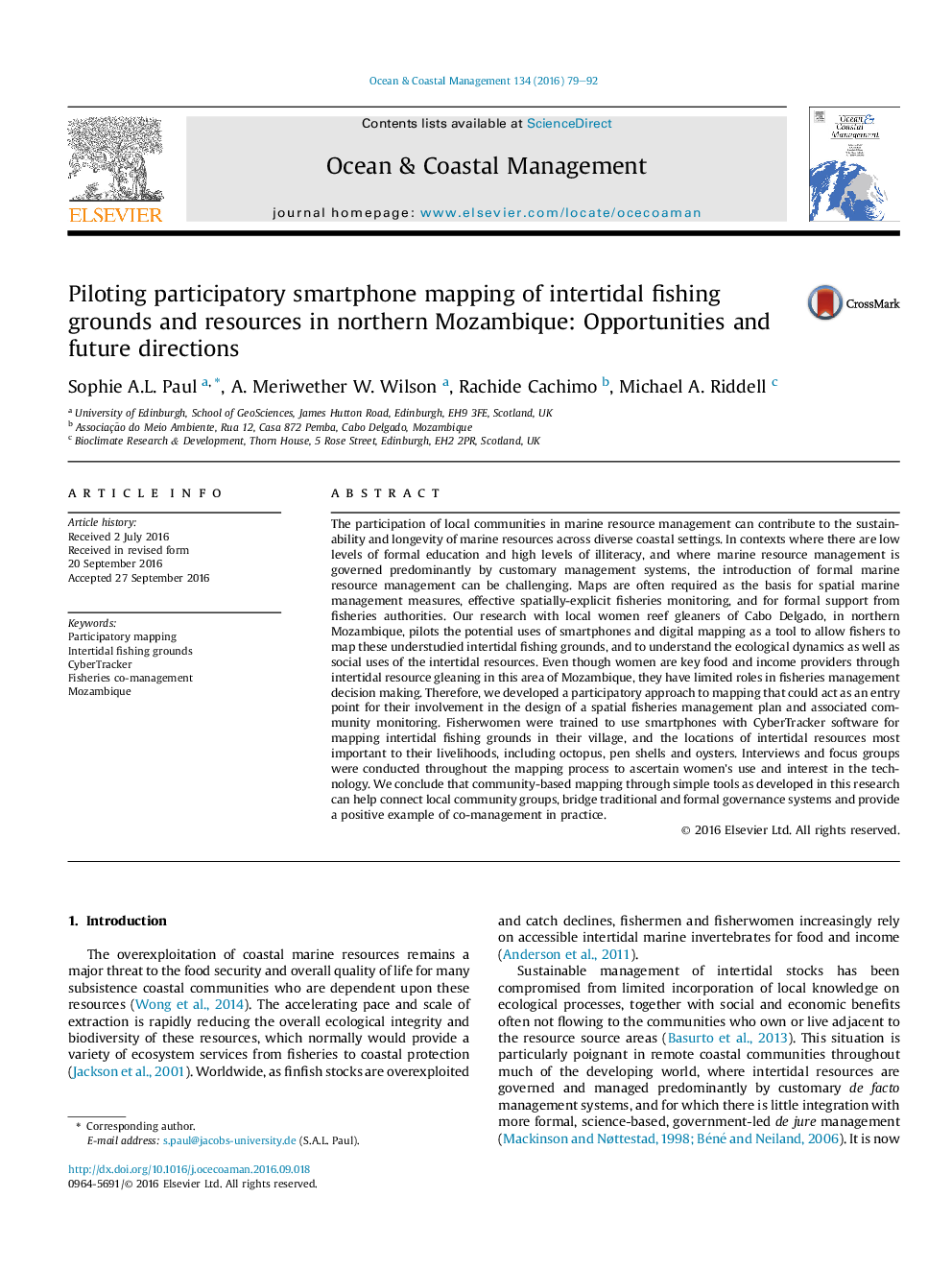| کد مقاله | کد نشریه | سال انتشار | مقاله انگلیسی | نسخه تمام متن |
|---|---|---|---|---|
| 5473918 | 1520495 | 2016 | 14 صفحه PDF | دانلود رایگان |
عنوان انگلیسی مقاله ISI
Piloting participatory smartphone mapping of intertidal fishing grounds and resources in northern Mozambique: Opportunities and future directions
ترجمه فارسی عنوان
نقشه برداری از گوشی هوشمند مشارکتی با نقشه برداری از مواضع و منابع ماهیگیری بین دریایی در شمال موزامبیک: فرصت ها و مسیرهای آینده
دانلود مقاله + سفارش ترجمه
دانلود مقاله ISI انگلیسی
رایگان برای ایرانیان
کلمات کلیدی
موضوعات مرتبط
مهندسی و علوم پایه
علوم زمین و سیارات
اقیانوس شناسی
چکیده انگلیسی
The participation of local communities in marine resource management can contribute to the sustainability and longevity of marine resources across diverse coastal settings. In contexts where there are low levels of formal education and high levels of illiteracy, and where marine resource management is governed predominantly by customary management systems, the introduction of formal marine resource management can be challenging. Maps are often required as the basis for spatial marine management measures, effective spatially-explicit fisheries monitoring, and for formal support from fisheries authorities. Our research with local women reef gleaners of Cabo Delgado, in northern Mozambique, pilots the potential uses of smartphones and digital mapping as a tool to allow fishers to map these understudied intertidal fishing grounds, and to understand the ecological dynamics as well as social uses of the intertidal resources. Even though women are key food and income providers through intertidal resource gleaning in this area of Mozambique, they have limited roles in fisheries management decision making. Therefore, we developed a participatory approach to mapping that could act as an entry point for their involvement in the design of a spatial fisheries management plan and associated community monitoring. Fisherwomen were trained to use smartphones with CyberTracker software for mapping intertidal fishing grounds in their village, and the locations of intertidal resources most important to their livelihoods, including octopus, pen shells and oysters. Interviews and focus groups were conducted throughout the mapping process to ascertain women's use and interest in the technology. We conclude that community-based mapping through simple tools as developed in this research can help connect local community groups, bridge traditional and formal governance systems and provide a positive example of co-management in practice.
ناشر
Database: Elsevier - ScienceDirect (ساینس دایرکت)
Journal: Ocean & Coastal Management - Volume 134, December 2016, Pages 79-92
Journal: Ocean & Coastal Management - Volume 134, December 2016, Pages 79-92
نویسندگان
Sophie A.L. Paul, A. Meriwether W. Wilson, Rachide Cachimo, Michael A. Riddell,
